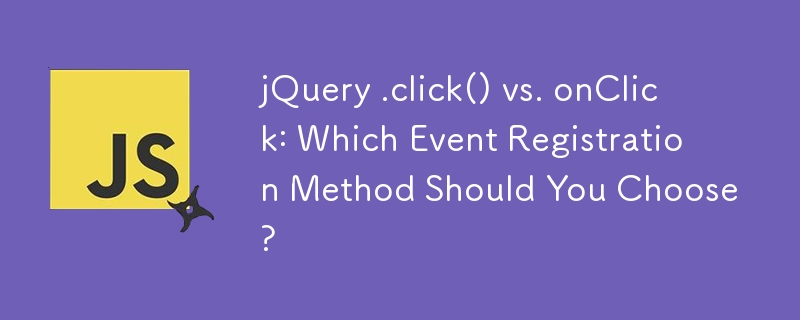

Comparison of Event Registration Methods: jQuery.click() vs onClick
In jQuery applications, there are two common methods used for handling click events: jQuery's .click() and the HTML onClick attribute. This article will delve into their relative advantages and disadvantages.
jQuery.click()
This method involves using jQuery to bind a click event listener to an element. It uses modern event registration through addEventListener.
Advantages:
onClick Attribute
This method is an HTML attribute that assigns a JavaScript function to be executed when the element is clicked.
Disadvantages:
Performance and Standard Considerations
In terms of performance, jQuery's .click() is generally preferred as it leverages the optimized event handling mechanisms of modern browsers.
Regarding standards, .click() adheres to the W3C DOM event registration specifications, while onClick is an outdated method that may not be supported in future browsers.
Conclusion
Overall, jQuery's .click() is the recommended method for handling click events in modern web development. It offers standard compliance, flexibility, and performance benefits. The onClick attribute, while still usable in legacy code, is best avoided for new applications.
The above is the detailed content of jQuery .click() vs. onClick: Which Event Registration Method Should You Choose?. For more information, please follow other related articles on the PHP Chinese website!




